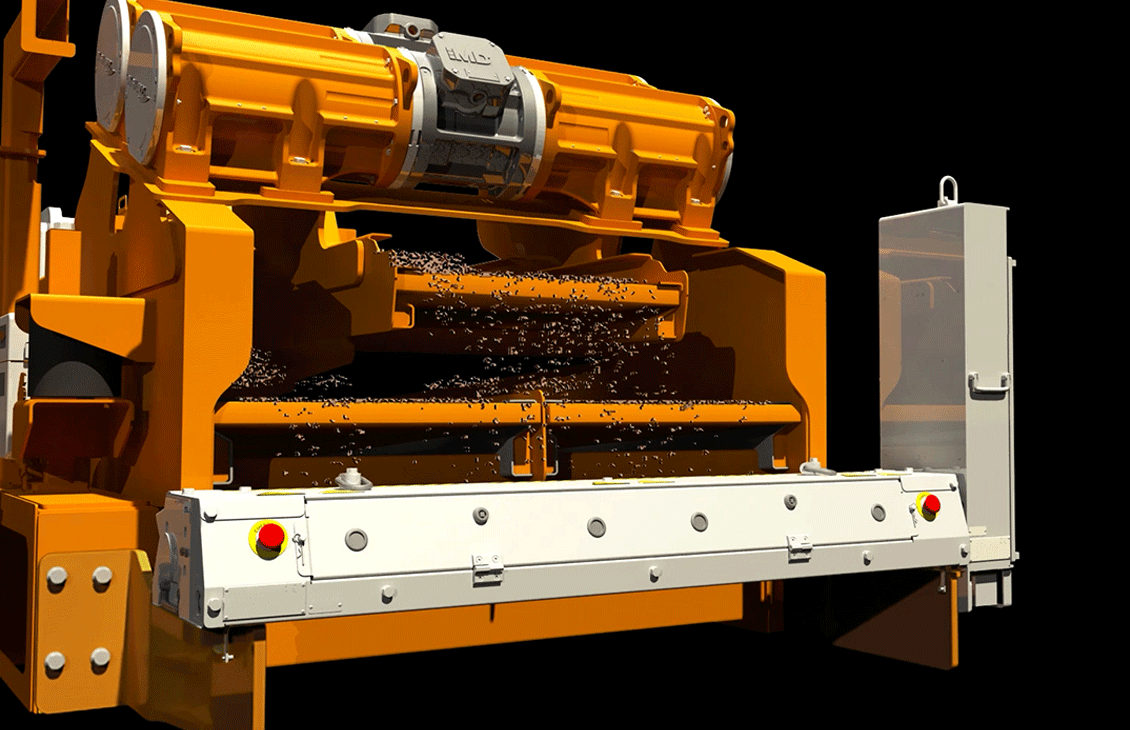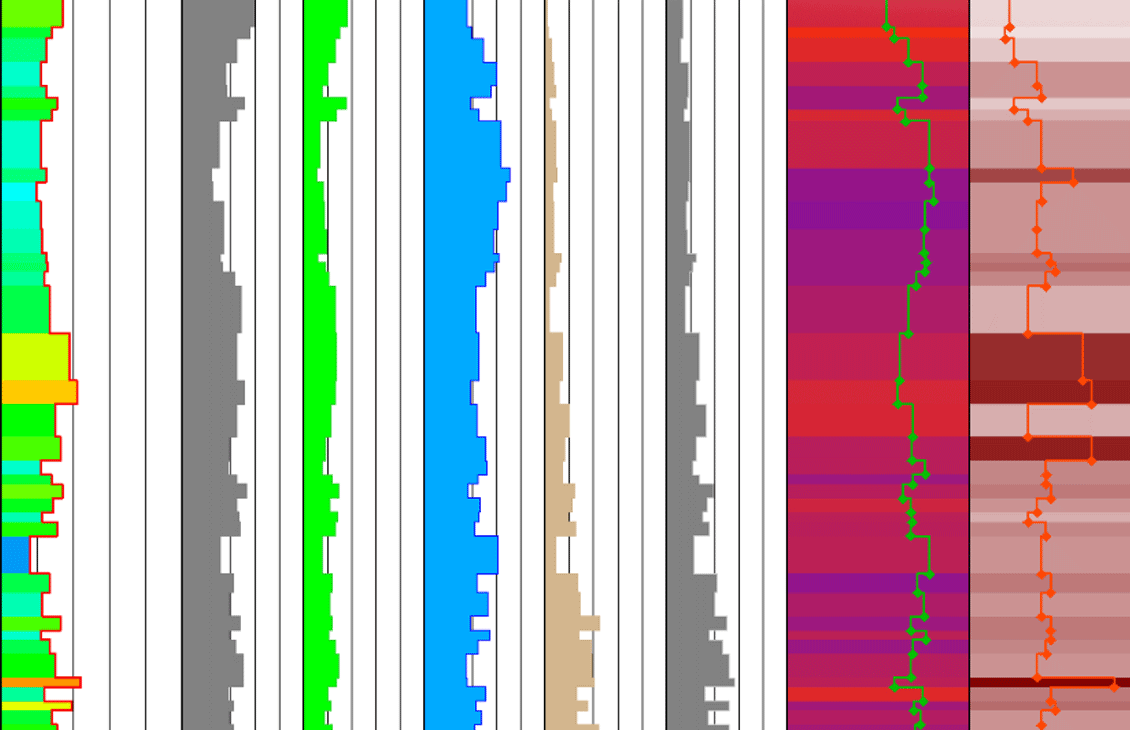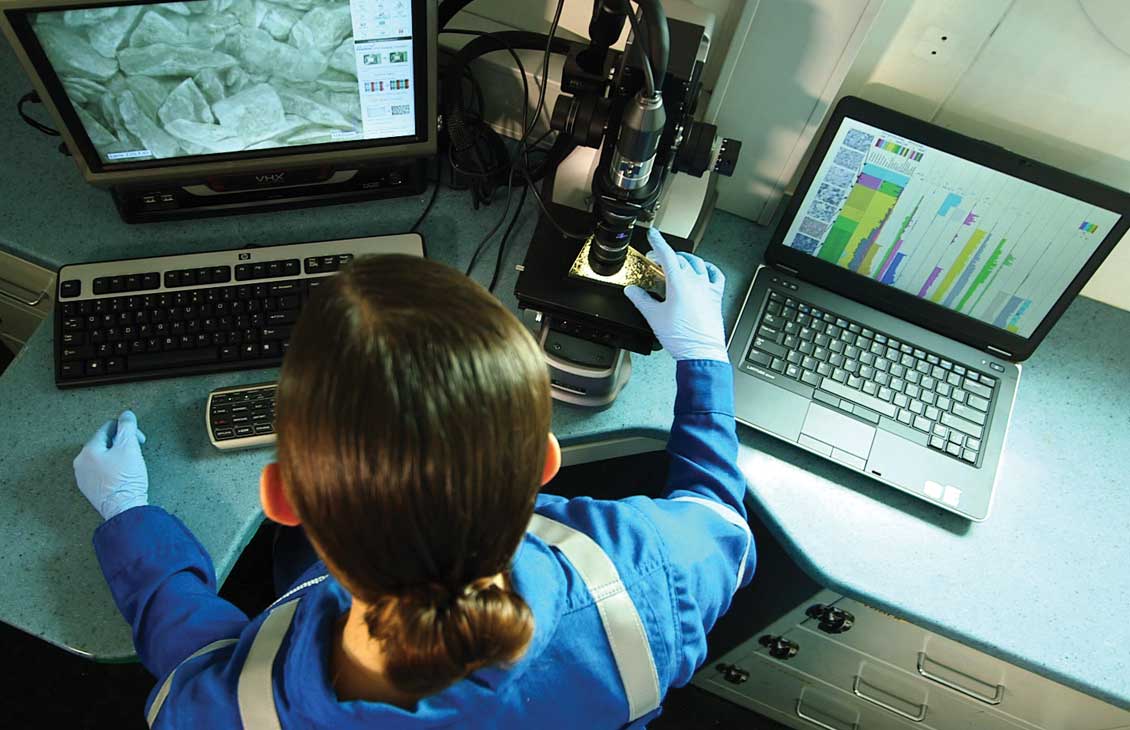Isotope Logging
Continuous carbon isotope measurement for hydrocarbon analysis


Improve subsurface analysis and reduce risk
Our Isotope Logging service delivers real-time, continuous measurement logs of carbon isotope ratios, enabling early access to geochemical characterization of hydrocarbons in terms of source, generation, alteration processes, and fluid properties.
Integrated with other formation evaluation data sources, real-time isotopic ratio logs enable immediate and accurate interpretation of geological and geochemical systems. When combined with quantitative fluid composition data from the FlairFlex™ advanced real-time fluid logging and analysis service, Isotope Logging enables early and reliable indication of mixing trends and maturity levels. This enhances the decision-making process, optimizes reservoir development, and provides important information on large-scale reservoir dynamics.
Dual services in Isotope Logging

Isotope Logging C₁
Isotope Logging C1 for continuous fast analysis of isotopic ratio of methane (C1) only.
Continuous isotopic measurement enabling geochemical characterization of hydrocarbon sources and processes.

Isotope Fluid Logging C₁–C₃
Isotope Fluid Logging C1–C3 for continuous isotopic ratio analysis of of methane (C1), ethane (C2), propane (C3), and carbon dioxide (CO2).
Enhance fluid characterization while drilling with isotopic analysis of δ13C of C1, C2, C3, and CO2.
Wide range of applications
| Isotope Logging C₁ | Isotope Fluid Logging C₁–C₃ | |
| Offshore wells | Yes | Yes |
| Onshore wells | Yes | Yes |
| Unconventional wells | Yes | Yes |
| CCUS | No | Yes |
Data-driven insights
| Isotope Logging C₁ | Isotope Fluid Logging C₁–C₃ | |
| Provides inputs to maturity, source rock type, and mixed charge | Partially | Yes |
| Provides early indications of reservoir connectivity and compartmentalization | Yes | Yes |
| Enhances fluid typing evaluation | Yes | Yes |
| Enables fluid properties prediction | No | Yes |
| Enables assessment of fluid alteration mechanisms | Partially | Yes |
| Optimizes sampling and testing programs | Yes | Yes |
| Identifies small-scale features | Yes | No |
| Provides insights into CCUS systems effectiveness | No | Yes |
| Secures investment return on isotope analysis | Yes | Yes |
| Identifies faults | Yes | Yes |
Advanced technology features
| Isotope Logging C₁ | Isotope Fluid Logging C₁–C₃ | |
| Technology | Cavity Ring-Down Spectroscopy (CRDS) | Gas chromatography-Isotope ratio mass spectrometry (GC-IRMS) |
| Measurements | δ13C of C1 | δ13C of C1, C2, C3, and CO2 |
| Analysis cycle time | Continuous | 3 minutes for C1–C2 and 6 minutes for C1–C3 |
| Precision | 1‰ at 500 ppm C1 to 25% C1 | 1‰ at 200–2,000 ppm and 0.5‰ at 2,000 ppm to 50% |
| Contamination removal | Alcohols, ammonia, ethene, propene | Alcohols, ammonia, ethene, propene |
| Drillbit metamorphism correction | Iso-Pure application | Iso-Pure application |




